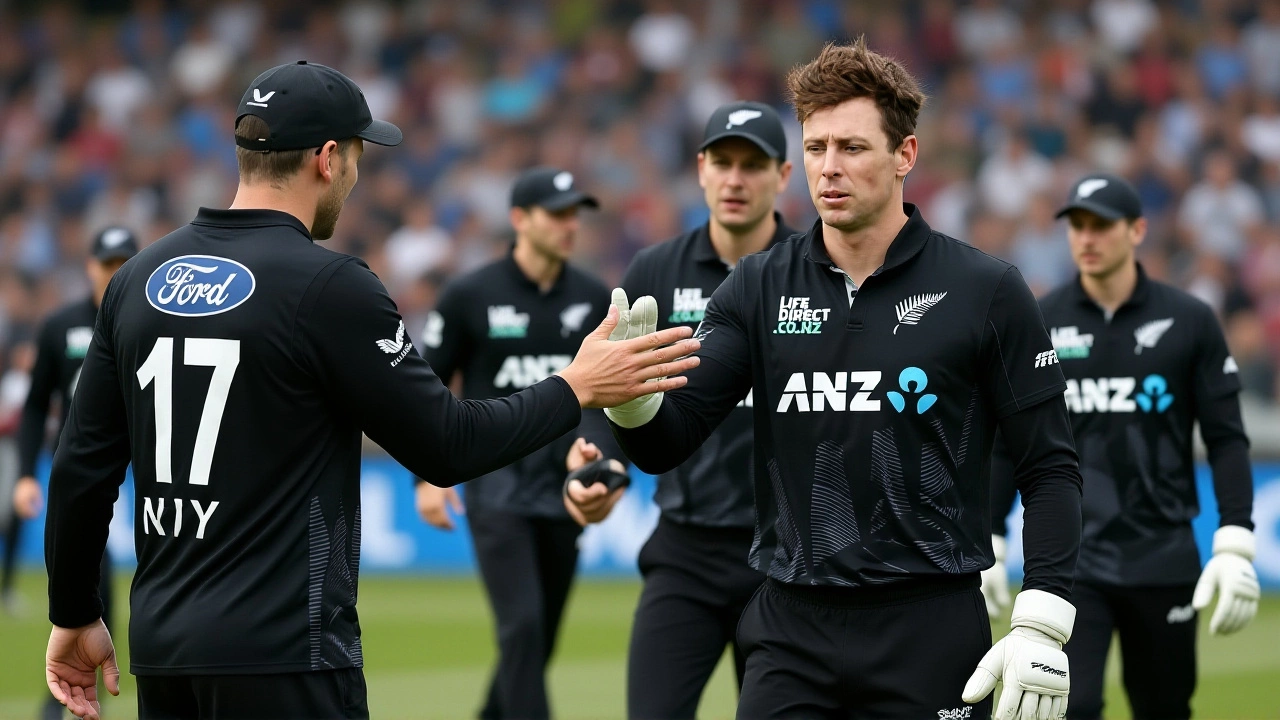On a humid March evening in Dubai, India sealed a historic triumph, defeating New Zealand by four wickets in the Champions Trophy 2025Dubai International Cricket Stadium to claim their third ICC Champions Trophy title — and the first ever undefeated campaign in the tournament’s history. With two balls to spare in the 49th over, Ravindra Jadeja guided India to 254-6, chasing down New Zealand’s 251-7, sparking wild celebrations among the Indian contingent in the stands. Captain Rohit Sharma, who smashed 76 off 83 balls, was named Player of the Match. The win ended India’s 12-year drought in ICC ODI tournaments, their last triumph having come in the 2013 Champions Trophy.
A Final Built on Pressure and Precision
It wasn’t pretty. It wasn’t dominant. But it was perfect. New Zealand, led by Kane Williamson, won the toss and chose to bat on a pitch that looked tailor-made for batting. Openers Rachin Ravindra (37) and Will Young (15) raced to 57 in under 10 overs — but then came the spin. Kuldeep Yadav (2-40) and Varun Chakravarthy (2-45) turned the game on its head. Williamson, stumped for just 11, became the third top-order casualty in six overs. The Black Caps’ innings looked doomed — until Daryl Mitchell (63 off 101) and Michael Bracewell (53*) staged a gritty rescue. Bracewell’s final over, which included two sixes off Jasprit Bumrah, was the difference between a defendable total and a winning one.
India’s Chase: When the Stars Align
India’s reply began with a statement. Rohit Sharma and Shubman Gill (31) put on 105 in 16 overs — the fastest opening stand of the tournament. Gill’s dismissal, caught brilliantly by Glenn Phillips at short cover, was a moment of brilliance. But four balls later, Bracewell trapped Virat Kohli lbw for a duck. The stadium fell silent. The crowd, mostly Indian, held its breath. The required rate climbed. The pressure mounted. Suryakumar Yadav (18) fell cheaply. Then Hardik Pandya (12) chipped one to mid-off. At 209-5, India needed 46 off 33 balls. Enter Jadeja.
The Unseen Architect
While Sharma stole the headlines, it was Jadeja who held the nerve. He didn’t hit big. He didn’t dominate. He simply survived. He took strike with 17 needed off 12 balls. He blocked. He nudged. He waited. Then, off the fifth delivery of the 49th over, he drove Trent Boult through the covers — four runs. The stadium erupted. The trophy was India’s. Jadeja, not Sharma, was the quiet hero. He ended with 9 not out off 14 balls. No one else scored more than 20 for India after Gill’s dismissal.
History Made, Drought Broken
This was India’s fifth Champions Trophy final — 2000, 2002, 2013, 2017, and now 2025. They’d lost three of the previous four. This time, they didn’t just win. They won without a single defeat. Four group games. Two knockouts. All won. No close calls. No slip-ups. Just dominance. And for Board of Control for Cricket in India (BCCI), headquartered in Mumbai, it was more than just silverware. It was redemption. The last ICC ODI trophy India lifted was in 2013 — a decade of near-misses, World Cup heartbreaks, and inconsistent performances. Now, with three Champions Trophy titles (2002, 2013, 2025), India has surpassed Australia’s two and stands alone at the top.
What New Zealand Lost — and Gained
For New Zealand, this was heartbreak, yes — but also validation. Their third final appearance (2000, 2009, 2025) showed they’ve become a consistent force. Mitchell Santner, their left-arm spinner and vice-captain, bowled with surgical precision throughout the tournament. Former Indian wicketkeeper Dinesh Karthik had predicted it: “They’re the team to beat.” And they were. Only one team stood in their way — and that team happened to be the most decorated in the history of the event.
What’s Next?
India now turns eyes to the 2027 World Cup in South Africa, Zimbabwe, and Kenya. With this win, their confidence is unshakable. The spin trio of Kuldeep, Varun, and Jadeja has proven lethal in high-pressure games. Sharma, now 37, may not play another global tournament — but his leadership has redefined the team’s identity. New Zealand, meanwhile, will rebuild around Williamson, who may retire after the 2027 World Cup. Bracewell’s emergence as a finisher and all-rounder signals a bright future. The rivalry? It’s no longer a footnote. It’s a classic.
Frequently Asked Questions
How does this win affect India’s standing in world cricket?
India now holds the record for most Champions Trophy titles (three), surpassing Australia and England. This win ends a 12-year ICC ODI trophy drought and confirms India as the most consistent team in limited-overs cricket since 2023. With a winning streak of 11 consecutive ODIs and an undefeated tournament run, they’re now the clear favorites for the 2027 World Cup.
Why was New Zealand’s innings considered a moral victory?
Despite losing, New Zealand posted their highest total in a Champions Trophy final, overcoming early collapse and pressure. Daryl Mitchell’s 63 and Michael Bracewell’s 53* under pressure showed their depth. For a team that had never won the trophy despite three final appearances, this performance signals they’re no longer underdogs — but contenders.
What role did spin play in India’s victory?
Spin accounted for 7 of New Zealand’s 10 wickets. Kuldeep Yadav and Varun Chakravarthy dismantled the top order, while Jadeja’s economical 4-0-18-1 in the death overs sealed the chase. India’s spin-heavy attack, used in all four group matches, proved devastating on Dubai’s slow pitch — a tactic that may influence future ODI strategies in the UAE.
How does this compare to India’s 2013 Champions Trophy win?
In 2013, India won by defeating England in the final, with Virat Kohli scoring 100*. This time, they beat the tournament’s best team, New Zealand, in a tense, low-scoring thriller. The 2025 win was more about resilience and team depth — no single player dominated, but the collective performed under pressure. It’s a sign of evolution in Indian cricket.
Who was the standout player of the tournament?
While Rohit Sharma won Player of the Match, the tournament’s standout was Kuldeep Yadav. He finished as the leading wicket-taker with 14 wickets in 5 matches at an average of 14.28, including a 5-42 against New Zealand in the group stage. His wrist spin was the X-factor that broke batting lineups under pressure.
What does this mean for future Champions Trophy formats?
With India’s dominance and New Zealand’s rise, ICC may consider expanding the tournament to include more teams, especially associate nations. The 2025 final’s viewership (over 200 million globally) and commercial success could push for a biennial format, replacing the current irregular scheduling. The UAE’s role as a neutral venue for finals may also become permanent.

